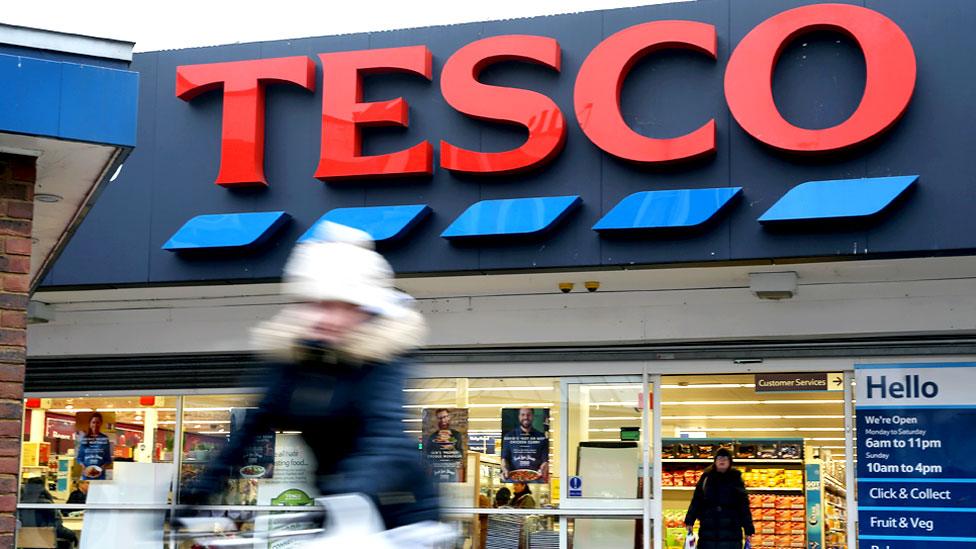'It's a real shame all the deli counters are shutting'
- Published
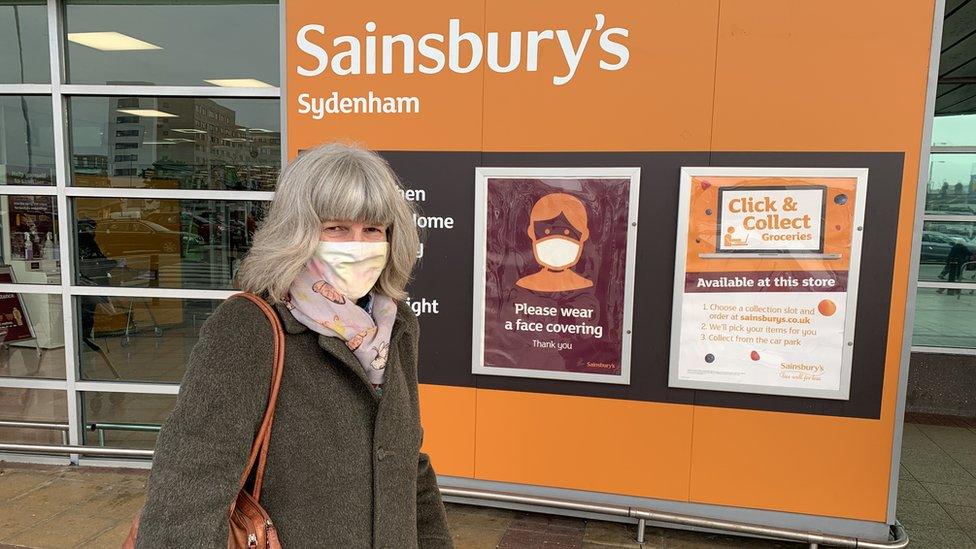
Janet is sad to see deli counters go at Sainsbury's
Janet says it's a "real shame" that Sainsbury's plans to close all of its meat, fish and deli counters permanently. Before the pandemic she'd used them for years so she could buy just the amount of fresh meat she needed.
"I think it's something they should be encouraging rather than getting rid of," she tells the BBC at the Sydenham branch in South London.
"You could bring your own containers and they'd put the food in them. It saved on all this packaging and the waste it creates."
But the supermarket giant's decision doesn't bother everyone, particularly at a time when people are doing more shopping locally and independent delis have become a fixture on many high streets.
There's the convenience factor too.

Alex Johnson isn't a big fan of deli counters
"You can get the meat you need, the cheese you need on the shelves and it is a quicker experience than waiting in a queue to get the item from the deli counter," says Alex Johnson, who also shops at Sainsbury's in Sydenham.
"When you've got kids it's much more about getting your shopping done quickly."
Sainsbury's closed its meat, fish and deli counters back in March, saying it was focusing its efforts on "feeding the nation".
And while its decision this week not to re-open them is part of a big cost-cutting exercise in the wake of the coronavirus pandemic, the company appears to be following a trend that was developing even before the virus struck.
Rival supermarket Tesco said early in 2019 that it planned to close fish, meat and deli counters in 90 of its stores and to operate them on reduced hours in others. It blamed falling demand and changing customer habits for the move.
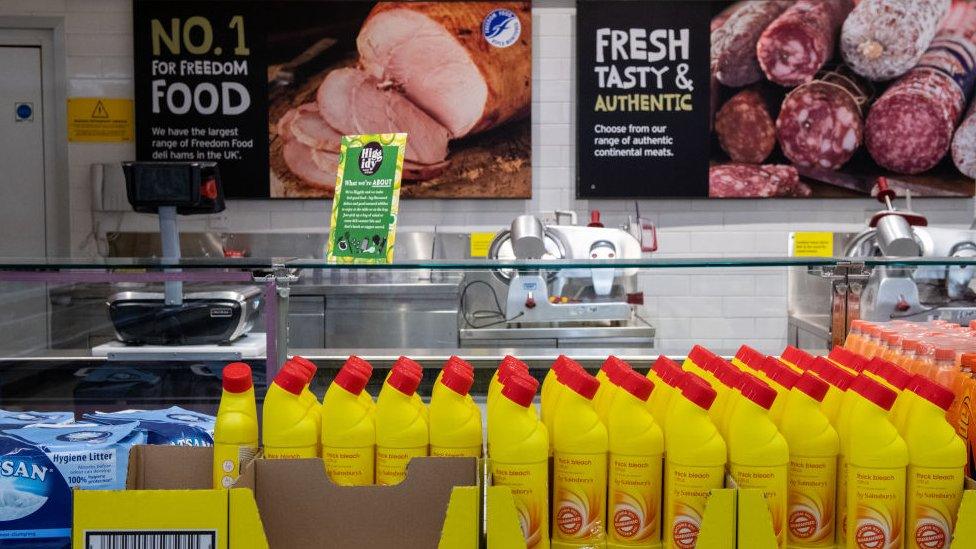
Sign of the times: Sainsbury's closed its deli counters in March
During the pandemic it too closed its remaining meat and fish counters, but most are open again now.
Asda followed suit at the beginning of 2020 with its proposal to replace its fresh meat and fish counters with "food for now" stalls - selling ready-to-eat food such as hot pies or sushi - in 150 of its shops.
Alone out of the "big four", Morrisons says it currently has no plans to close its meat and fish stalls.
Retail expert, Kate Hardcastle, thinks Sainsbury's decision is not only a sign of the difficult trading environment, but is also part of a strategy to "re-engineer" the supermarket for a future where shoppers no longer want to linger over a huge range of products.
"Those counters were really important, they brought what we call retail theatre into the mix and retail theatre's so important, but only when people are shopping with the senses available to them. So, you can't smell things with a face mask," she says.
"People are shopping with military precision, it isn't about stopping and dwelling now, it's about efficiently getting on."
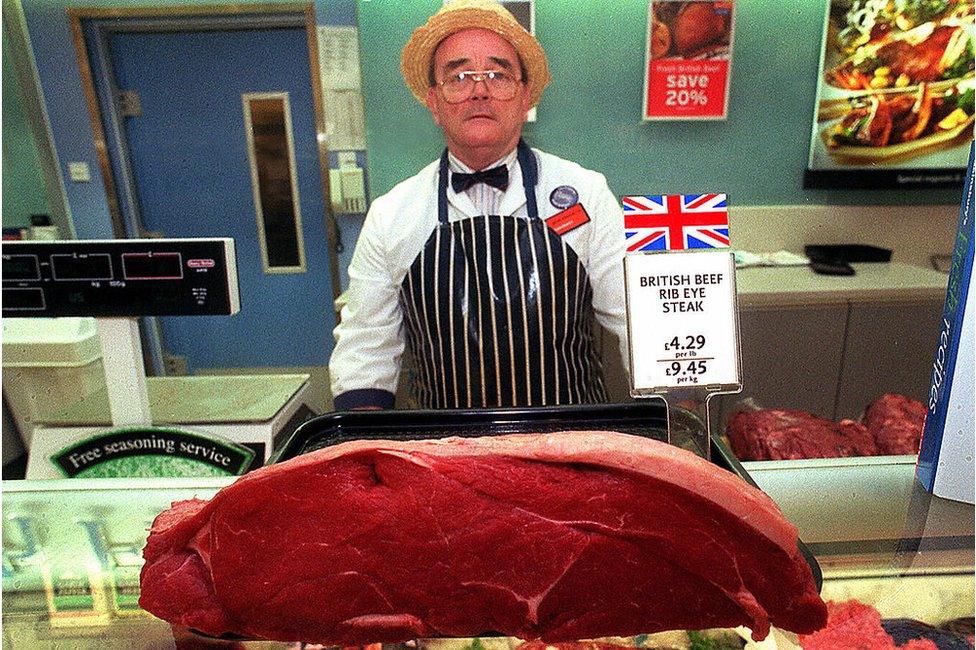
In the 1990s the supermarket was "almost a hypermarket" and we spent a lot of time in it, says Kate Hardcastle
Kate also points out that the German discounters, Aldi and Lidl, don't have an in-store butcher, and yet they've still won awards for their meat.
"And so what the competitors like Sainsbury's have seen is actually, 'oh maybe we don't need the theatre of a man or a woman stood there with the blue and white striped apron, maybe actually it's all about the value proposition instead,'" she says.
Not all shoppers agree though. Anna Dovey from Farnham in Surrey enjoyed the slower pace that choosing food at the deli counters brought.
"You have that one-to-one interaction," she says. "You can say, 'can I have a slice of this or a slice of that?'"
But for Anna the main driver for going to the fresh food counters was that it was a very convenient means of shopping in an environmentally friendly way.
Like Janet, before the pandemic hit she'd been taking her own plastic containers along to her local Sainsbury's for the staff to put her purchases into them, whether it was chicken breasts, steak or cheese.
"I had planned on continuing that once this is over," she says. "This move just exacerbates the plastic problem. And no, recycling is not the solution."
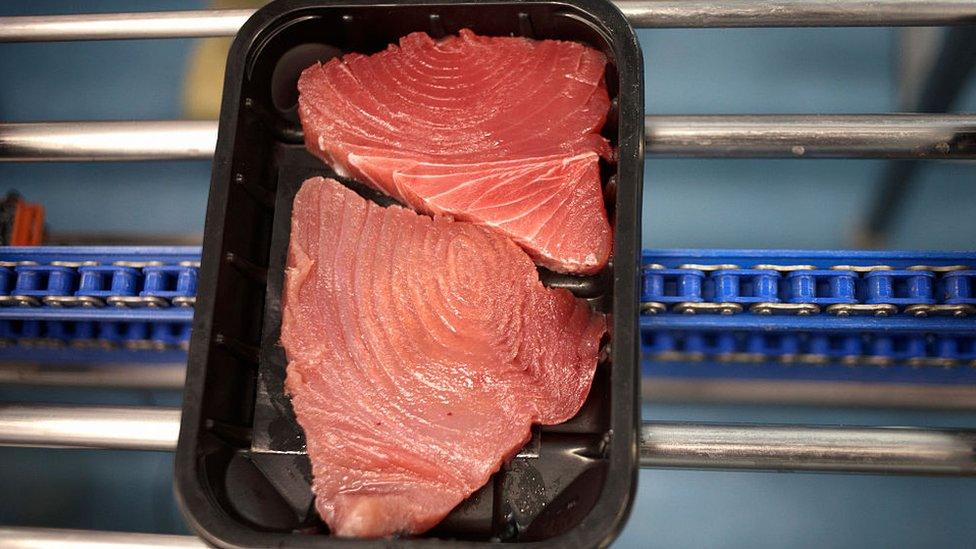
Critics say closing fresh food counters means Sainsbury's will have to rely more on food packaged in plastic
Sainsbury's says it is committed to reducing its plastic use, as it works towards a target of becoming "net zero" by 2040.
The news that the meat, fish and deli counters will close permanently has come as a "smack in the teeth" for the people who work on them, says Bev Carson, the national officer for the food industry at the Unite union.
"Sainsbury's workers take pride in their work. They're really proud, or they were really proud, to work for Sainsbury's," she says.
Since March staff from the fresh food counters have been absorbed into the rest of the workforce in their stores. Announcing the cuts, Sainsbury's boss Simon Roberts said it would do "everything possible" to find alternative roles for those whose jobs are at risk, but Bev is concerned about how many workers the company will actually be able to redeploy.
Moreover, she says, these are specialist staff, in some cases with knowledge "second to none" of the products they were selling.
"So they're losing skills, they're basically losing skills. It's just another decline in this industry that's going to fast foods."
- Published5 November 2020
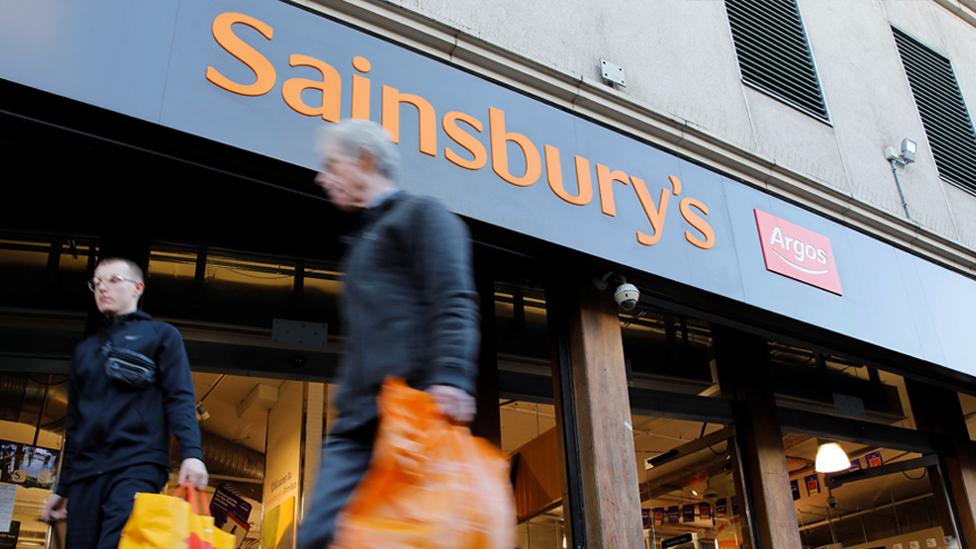
- Published28 January 2019
